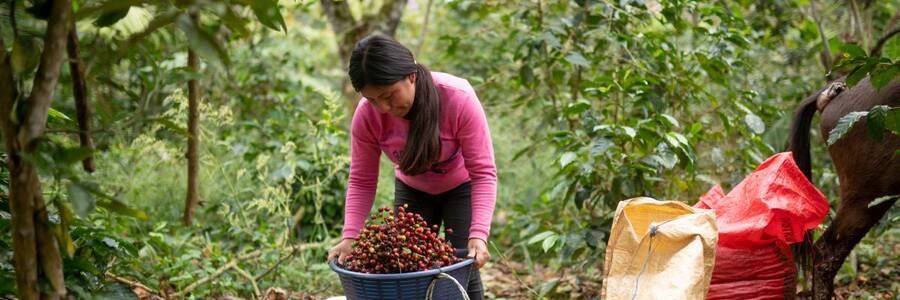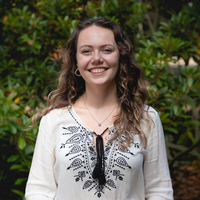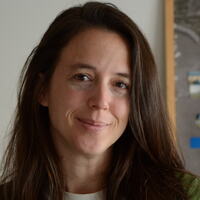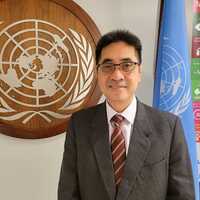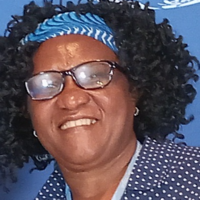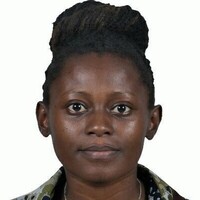Decoupling agriculture from deforestation: win-wins for climate, livelihoods and food security
UNFCCC COP 27 Food and Agriculture Pavilion side event
Organizers: FAO GEF-7 Food Systems, Land Use and Restoration (FOLUR) and Dryland Sustainable Landscapes (DSP) Impact Programmes, UN-REDD Programme, FAO Ecosystem Approach to Crop Production Intensification team
Date: Wednesday, 16 November 2022
Time: 19:00-20:00 (GMT+2)
Modality: Hybrid (livestream available at Food and Agriculture Pavilion)
Languages: English
Background: Directly speaking to the Glasgow Leader’s Declaration on Forests and Land Use, the event will feature speakers from governments, producer organizations and key international partners who work on agrifood systems transformation to reduce deforestation and land degradation. Speakers will present concrete, strategic and on-the-ground examples showcasing agriculture-forestry win-win opportunities that directly contribute to climate change mitigation, resilient landscapes, food security and better livelihoods.
Moderator: Katie McCoshan, Policy and International Engagement Manager, Food and Land Use Coalition (FOLU)
Opening remarks: Tiina Vähänen, Deputy Director, Forestry Division, FAO
Keynote speech
Transforming lives and landscapes with trees
Peter Minang, Director for Africa, Center for International Forestry Research and World Agroforestry (CIFOR-ICRAF)
Teaser
Cutting edge knowledge on deforestation drivers
Caroline Merle, Forestry Officer, Forestry Division, FAO
Panel discussion: Effective, concrete and strategic tools for agrifood systems transformation approaches
- Decoupling livestock production from deforestation: REDD+ and results-based payments boosting transformative acceleration on the ground
Florencia Mitchell, National Director of Climate Change, Ministry of Environment and Sustainable Development, Argentina - Ensuring sustainable livelihoods and economies while reducing deforestation and carbon emissions
Agus Justianto, Director General of Sustainable Forest Management, Ministry of Environment and Forestry, Indonesia - Promoting transformative change in Kenya's agricultural strategies for climate change adaptation and mitigation
Veronica Ndetu, Head of the Climate Change Unit, Ministry of Agriculture, Kenya - Smallholder lenses
- Janet Maro, Co-founder and Chief Executive Officer, Sustainable Agriculture Tanzania (SAT)
- Estrella Penunia, Secretary General, Asian Farmers’ Association for Sustainable Rural Development (AFA)
More on our Speakers
More on our Speakers
| Katie is the Policy and International Engagement Coordinator for the Global Food and Land Use Coalition (FOLU). Prior to joining WRI, Katie straddled both business and politics, working to promote trade and investment in emerging markets with DMA Invest and as a senior advisor in the House of Lords. Prior to joining WRI, Katie straddled both business and politics, working to promote trade and investment in emerging markets with DMA Invest and as a senior advisor in the House of Lords. She has a Master’s with Distinction in Environment and Development from the London School of Economics, and a First-Class Undergraduate Degree from the University of Cambridge in Geography. Katie has been a passionate advocate for sustainability for as long as she can remember and is still proud of her blue peter badge for making a Christmas tree out of recycled bottles aged 7. | |
| Tiina Vähänen is the Deputy Director the Forestry Division of the Natural Resources and Sustainable Production stream. In her previous role, she has led FAO work on REDD+ and national forest monitoring. She has worked on international forest and natural resources policy issues at FAO since 2001 and led the organization of the 14th World Forestry Congress in 2015. She has coordinated FAO’s contributions to the global climate change debates, notably UNFCCC, and managed FAO forestry contributions to other international agreements and the Collaborative Partnership on Forests. Ms Vähänen has M.Sc. on Forestry and Agriculture. | |
| Peter Minang has over 20 years’ experience in the areas of ecosystem services, community forestry, conservation and REDD+, and has published widely on these issues. He also advises several African countries and institutions on land use and climate change-related issues. His current research interests include the nexus between adaptation and mitigation to climate change; and the interface between environmental services and development, and multifunctional landscapes. Minang also serves as the Global Coordinator, ASB Partnership for the Tropical Forest Margins, and as the Landscapes Flagship Leader, CRP on Forests, Trees and Agroforestry. He is very passionate about driving transformative change among communities in Africa. | |
| Caroline Merle is a Forestry Officer in the Food and Agriculture Organization (FAO), specialized on deforestation drivers and deforestation-free supply chains. She has been working in the environmental and sustainable development sector since 2000, in France, South America and the Indian Ocean. Her expertise in the forest sector includes forest governance, strategic instruments and forest policies, regional forest planning, forest economics, forest projects assessment, interactions between forests and agriculture and deforestation dynamics. She has also vast experience in environmental and sustainable development projects and assumed various management positions in public and private entities.” | |
| Ms Florencia Mitchell is an Industrial Engineer who graduated from the School of Exact Sciences, Engineering and Surveying of the National University of Rosario (Facultad de Ciencias Exactas, Ingeniería y Agrimensura de la Universidad Nacional de Rosario). She is currently the National Director of Climate Change of the Secretariat of Climate Change, Sustainable Development and Innovation sitting under the Ministry of Environment and Sustainable Development of Argentina. She works on defining and coordinating the implementation of policies, initiatives, programs and projects aimed to promote resilient, low-carbon and inclusive development in the country. She has extensive experience and knowledge in environmental and technological issues provided by her national and international studies and volunteer experiences carried out in various civil society organizations. | |
| Dr Agus Justianto has worked as a Civil Servant at the Ministry of Environment and Forestry since 1986. Currently, he serves as the Director General of Sustainable Forest Management since July 2001. He completed his Bachleor of Forestry at the Bogor Agricultural University in 1986, then obtained a Master of Natural Resources from the University of New England, Australia in 1992 and Doctor of Agricultural Economics from Bogor University in 2005. Dr. Agus Justianto actively participatesand engagesin various forums on environmental and forestry issues, including international meetings and negotiations. Currently, he also serves as the Secretary of the Climate Change Control Advisory Council, Ministry of Environment and Forestry. | |
| Veronica Ndetu is the Head of Climate Change at the Ministry of Agriculture and Livestock Development in Kenya. She is an expert in Agriculture and climate change with a Master’s Degree in Seed Science and Technology and a Bachelor of Science degree in Agriculture with wide on-job training and substantial experience in climate change issue. She has expansive knowledge on international and national climate change policy landscape, impacts of climate change on land, agricultural production, food security and livelihoods. Veronica is currently involved in mainstreaming climate change interventions in the agriculture sector in Kenya through dissemination of Climate Smart Agriculture and other approaches; coordination of stakeholders in the agriculture sector to enhance adoption and scaling up of approaches and best practices on climate action, undertaking policy analysis and reporting transparency in climate action. | |
| Janet Maro is Co-Founder and Chief Executive Officer Programme of Sustainable Agriculture Tanzania (SAT) a local organization in Tanzania which for over 10 years and an outreach of over 27,000 farmers has been working at the national level with the goal that smallholder farmers are able to feed their families and earn an income from practicing agriculture in a sustainable, socially viable and environmentally friendly way. SAT is winner of the One World Award and overall winner of the inaugural AFSA Africa Agroecology Award 2021 prize Civil Society Category. | |
| Ma. Estrella 'Esther' Penunia, is Secretary General of the Asian Farmers’ Association for Sustainable Rural Development (AFA), a regional alliance of national farmers organizations or FOs in Asia. AFA is currently composed of 22 national FOs in 16 countries, representing around 13 million small scale men, women and young family farmers, engaged in crops, livestock, fisheries, forestry, herding and pastoralism. AFA promotes farmers’ rights to lands, waters, forests and seeds, sustainable, climate-resilient agro-ecological approaches in farms, fisheries and forests, strengthening farmers cooperatives and their enterprises, women empowerment, attracting the youth to agriculture, and effective governance of FOs through an integrated program on movement building, policy advocacy, capacity building, knowledge management, and business development servicing. |

